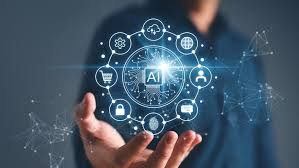
Is Performance Marketing a lie?
- Sep 27, 2024
- 0

Generative AI has emerged as a game-changer in the world of technology. From text and image generation to code automation and music composition, tools like ChatGPT, Midjourney, and GitHub Copilot are redefining what’s possible.
Why it matters:
Generative AI shifts the role of humans from creators to editors. Instead of starting from scratch, professionals can now prompt a model, get a base result, and iterate from there—saving time and enhancing productivity.
Real-world impact:
Marketing teams are generating ad copy, blog drafts, and product descriptions in minutes.
Developers use AI assistants to auto-complete code and refactor legacy systems.
Designers explore variations of images, logos, or layouts using prompt-based tools.
Generative AI isn't about replacing creativity—it's about scaling it.
Artificial intelligence is becoming both the shield and the sword in the cybersecurity landscape.
The good:
AI-powered tools detect anomalies, predict threats, and automate incident response. Machine learning models can sift through terabytes of logs to spot unusual behavior that a human might miss.
The bad:
Cybercriminals are using AI too—deepfakes, phishing email generators, and automated vulnerability scanners are more powerful than ever.
What to watch:
Growth in AI-driven security platforms like CrowdStrike, Darktrace, and SentinelOne
Regulation of AI-generated threats (especially deepfakes and fraud)
Increased need for AI-literate cybersecurity professionals
The future of cybersecurity will be a constant race between attackers and defenders—both using AI.
As AI systems influence hiring, lending, healthcare, and even legal decisions, the importance of responsible AI has never been greater.
Key concerns:
Bias in training data leading to unfair decisions
Lack of transparency in black-box models
Overreliance on AI in high-stakes environments
What companies are doing:
Building AI ethics boards and compliance teams
Releasing open audits of model performance
Creating explainability tools (e.g., SHAP, LIME)
Responsible AI isn’t just a buzzword—it’s a business imperative. Trust, fairness, and accountability will determine which AI companies thrive.
One of the most debated topics around AI is its impact on employment. Will AI eliminate jobs—or create new ones?
Reality check:
AI will automate some tasks, but also create demand for new skills and roles. Think of how the internet replaced travel agents—but created roles in digital marketing, web development, and e-commerce.
Emerging AI-powered roles:
AI prompt engineers
Model fine-tuning specialists
AI ethicists and explainability consultants
Human-AI interaction designers
The future belongs to those who can work with AI, not against it. Upskilling and reskilling are the keys to staying relevant.